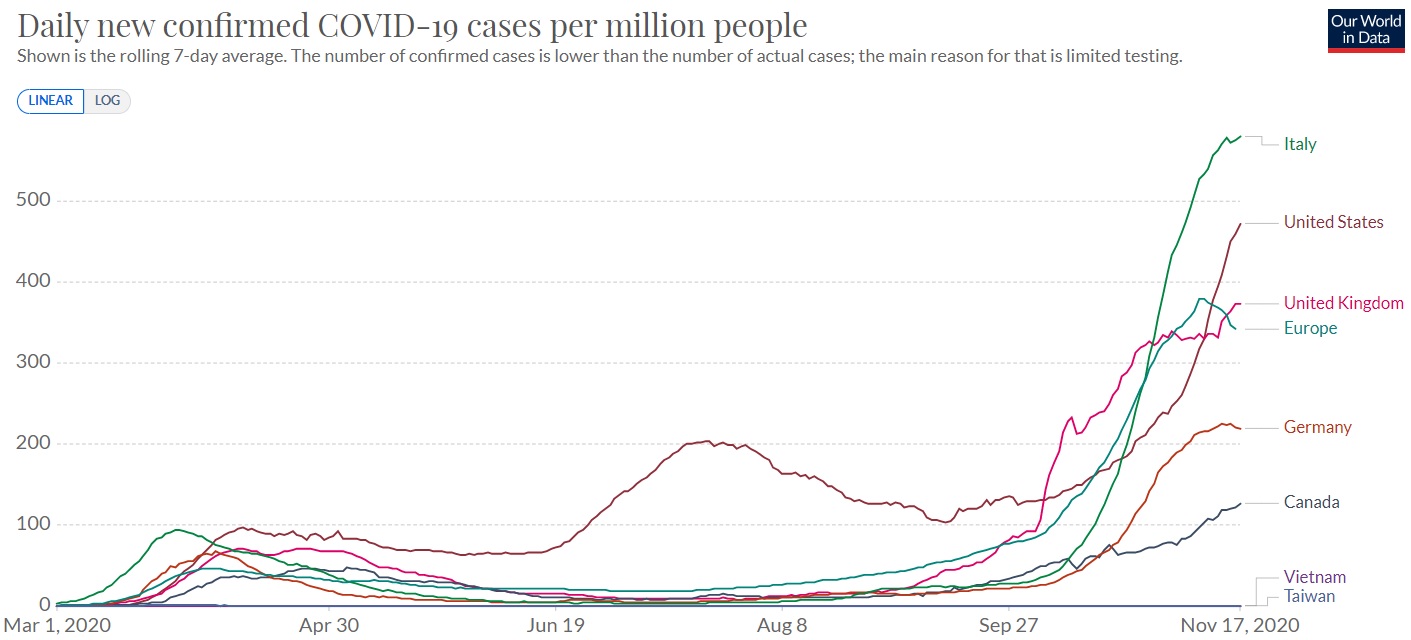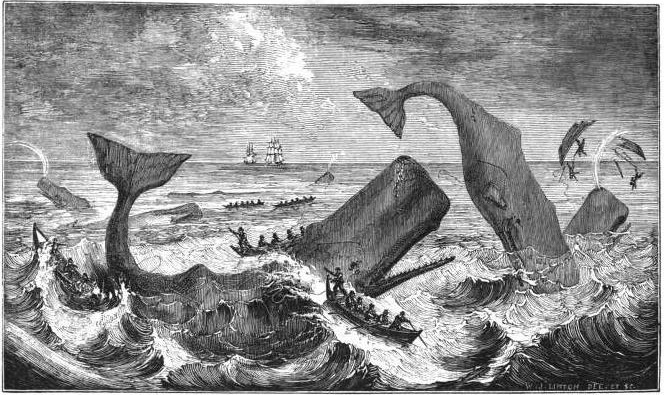A sneeze. A sneeze??!!! Oh no, I’ve got Covid-19!!! Uh, no, just the usual cat fur our feline friends shed around the house itching our nose. One silver lining of mostly social distancing the last eight months is we have not had a cold in eight months. But it feels like the world as a whole has a bad head cold affecting our faculties and dulling our senses. How else to explain the under appreciation of the vaccines developed by Pfizer and Moderna in record time using new technology. Yes, the stock market went up and people were enthused about an end in sight for the pandemic but there seems to be little recognition that these vaccines may herald a whole new medical era. The two vaccines use Messenger RNA technology that train the immune system to attack the Covid-19 virus. But this same technique can be used to attack cancer cells, other viruses and even perhaps the various viruses that cause the common cold. We have not had a cold for eight months and now it’s possible in the near future we may never get one again (Editor: But cancer is more important, right? INTN: Of course.) And, given what we learned about Dolly Parton last year, it should be no surprise that she was a source for this solution. The year 2020, denigrated by so many of us, may be the dark night that leads to the light of a clear blue morning of, among other things, medical breakthroughs. So stop being glum while we shed light on a whole new trade world, whether Covid-19 was in Italy as early as September 2019, and evidence of the orcas striking back. It’s this week’s International Need to Know, cooking as much food as usual for Thanksgiving but eating it all ourselves while serving up international information and data.*
Without further ado, here’s what you need to know.
A Whole New World
Assuming the authoritarians in the Republican Party* acquiesce to a new president, the forthcoming Biden administration will have to grapple with a new trade world as it develops policy in the 2020s. From new trade alliances, de-fanged trade organizations such as WTO and a host of other ways the world has transformed, Biden sloshes in new waters. One of the new trade alliances is the Regional Comprehensive Economic Partnership, a regional trade deal among 14 Asian countries, including China. Yep, four years after the U.S. pulled out of the Trans Pacific Partnership (TPP), a deal designed in part to counter China and impel it to live up to modern trade standards, China is part of a trade deal with the key economies of Asia. The signees are China, Japan, South Korea, Australia, New Zealand and the 10 countries of the Association of Southeast Asian Nations (ASEAN). These countries comprise about one-third of world GDP and population. Unlike, TPP, the RCEP doesn’t include provisions on labor rights or environmental standards. Those who opposed TPP ended up doing nothing to protect the environment or protect workers, but they did help China gain more sway in Asia. Congratulations. More on this in our forthcoming book, Challenging China. Soon you’ll be able to pre-order it!
Was Covid-19 in Italy in September, 2019?
The first known case of Covid-19 in the United States was in our neck of the woods, here in the Seattle area on January 15. But it is unlikely it was actually the first case of Covid-19 in America. Genetic sequencing indicates that it was probably much earlier than January. In Italy, the first confirmed case was on January 31, 2020, but there, too, Covid-19 was probably infecting Italians earlier than that. In fact, a new paper shows evidence that as far back as September 19, 2019, Covid-19 was spiking itself into Italian cells. The paper asserts, “According to research by the Cancer Institute of Milan and the University of Siena, the coronavirus would already have been present in Italy in September 2019.” The research center looked at the blood samples of 959 Italians who participated in lung cancer screenings. Some of those blood samples taken in September, it turns out, “revealed antibodies specific to the binding domain of the Sars-Cov-2 receptor (Rbd).” This might help explain why most of the spread of Covid-19 in January and February, especially in the New York area, came from Europe, not from China. There is much we are still learning about this pandemic. We fully expect more surprises await us.
The Orcas Strike Back?
A year or so ago we were in a meeting with a Canadian official and the subject of Puget Sound orcas came up. Canada had been criticized for a variety of activities, especially its expansion of the Trans-Mountain Pipeline, that some believe threaten the viability of orcas survival in Pacific Northwest waters. The Canadian official told us it was too late to save the orcas and current Canadian policies should continue unabated. We thought of this conversation while reading about orcas off the coasts of Spain and Portugal who have been attacking/playing with fishing boats there. According to a lengthy article by the BBC, there have been at least 40 incidents in recent months of orcas intentionally hitting fishing boats. They mostly are going after the rudders. One example cited in the article was “…a Spanish naval yacht, Mirfak, [that] lost part of its rudder after an encounter with orcas. A video of that incident showed the crew trying to outrun the animals, which appeared to pursue the boat.” The main culprits are apparently a couple of younger orcas—some sort of delinquent teenagers of the whale world. Scientists think these young whales are playing, not intentionally attacking the boats, but they don’t know for sure. In the early 2010s, the number of orcas in these waters were reduced dramatically after overfishing of their favorite meal—tuna. This is similar to the problem here where orcas are often unable to find enough salmon. We are no expert about whales or marine life but given what has happened off the coast of Iberia, perhaps the Canadian official should be careful in going out on a boat in Puget Sound. It’s possible our orcas have learned a thing or too from their European kin.




